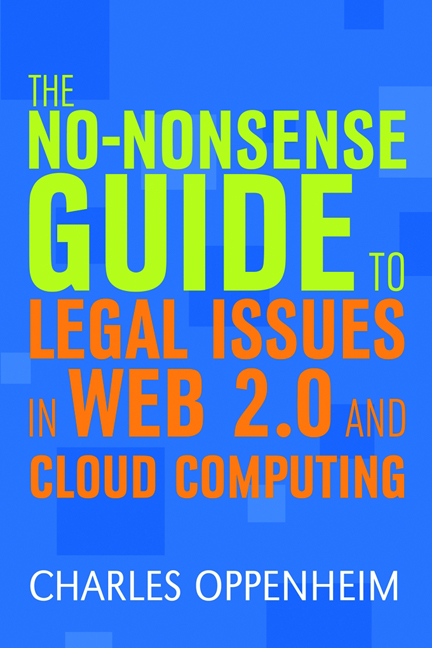Summary
Introduction
Liability can be broadly defined as a legal duty or obligation, or, slightly more specifically in the context of this book, the duty of care an individual or an organization owes to another. Failure in that duty means that the person who suffers as a consequence can sue the person or organization for the damage caused. It is important to note that the law of liability differs significantly between different countries. The focus of this chapter will be on UK law. In the UK, liability issues can arise both in contracts, and under the law of tort. This is not necessarily the case in other countries.
Contracts
The law of contract is complex and details of it are outside the scope of this book. Readers interested in studying this topic further are recommended to read a standard text on the topic, such as Paul Richards’ Law of Contract (10th edn, Pearson, 2011) or other texts as listed in Chapter 9. Readers should also note that the law of Scotland differs from that in England and Wales in some regards. In a nutshell, a contract is an agreement between two parties. Such an agreement can be verbal, as when one buys some fruit from a greengrocer, but the sorts of contracts that readers are likely to encounter in their professional lives, such as licences for the delivery of electronic resources, are in writing. They must involve an offer of something, for example, permission to access, display and download electronic resources, and an acceptance of that offer, typically indicated by the signing of the contract. Contracts do not have to involve money changing hands, though often they do. Any ‘consideration’ that is valuable to the other party is enough to make the contract legally secure, such as a promise to do something for the other party, or indeed, in some rare cases, a promise not to do something.
The important issue in contracts as far as liability is concerned is the fact that the supplier of goods or services must use reasonable skill and care in the provision of these services or goods. This applies whether or not the contract is written or verbal, and whether or not money changes hands.
- Type
- Chapter
- Information
- Publisher: FacetPrint publication year: 2012



